
Harris leads Trump by 4% nationally, but with wide variation by age, ethnicity, and U.S. regional cultures
A Nationhood Lab poll breaks down preisdential candidate Harris' slim national lead.
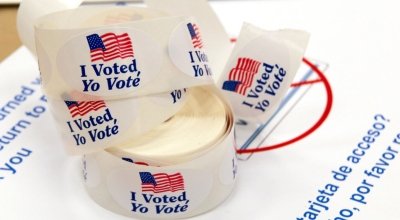
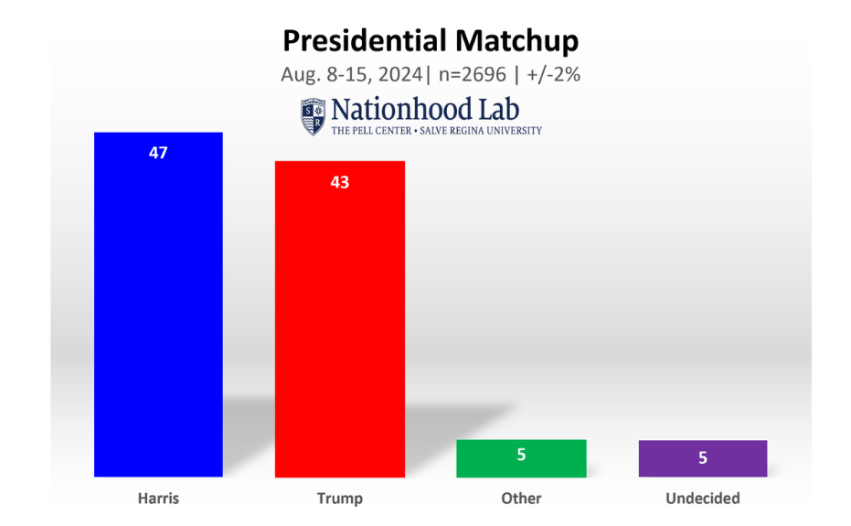
NEWPORT, RI— A new national poll from Salve Regina University’s Pell Center and Embold Research shows Vice President Kamala Harris leading former President Donald Trump by four percentage points among likely voters, but with large differences between age groups, ethnicities, and historically-based U.S. regions.
The poll of 2,696 likely voters was conducted August 8 to 15, before the Democratic National Convention, and has a margin of error of 2 percent. It found large generational gaps, with voters aged 18-34 supporting Harris by a 31-point margin, those aged 35-49 supporting her by a narrower 4-point margin, and those 50-64 backing Trump by 15 points. Likely voters aged 65 or older supported Trump by a narrower 2-point margin. People in the younger age categories were about twice as likely to still be undecided (7%) than the older categories (3%).
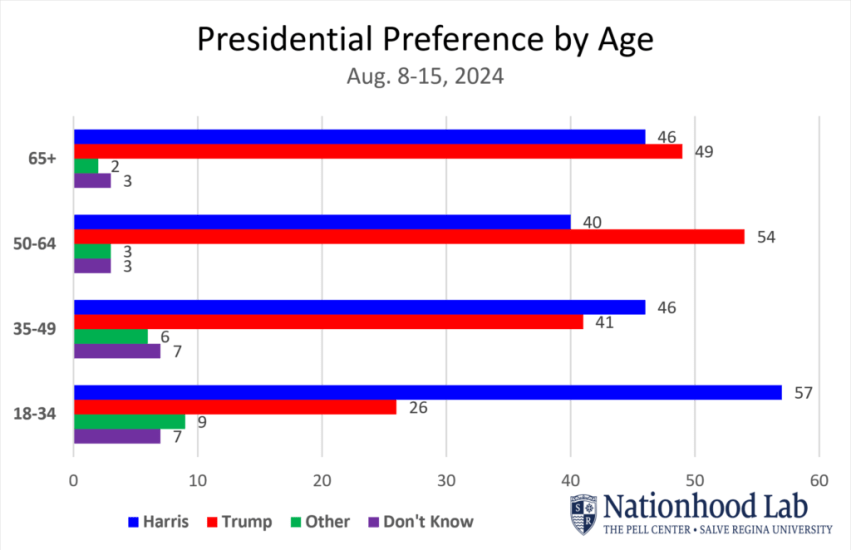
Trump leads white respondents by 7 points, while Harris leads with Hispanic respondents by 10, Asian-Americans and Pacific Islanders by 33, and Black respondents by 59. Only 4% of white and 5% of Hispanic respondents said they were undecided compared to 10% of Black and 12% of Asian-American and Pacific Islanders.
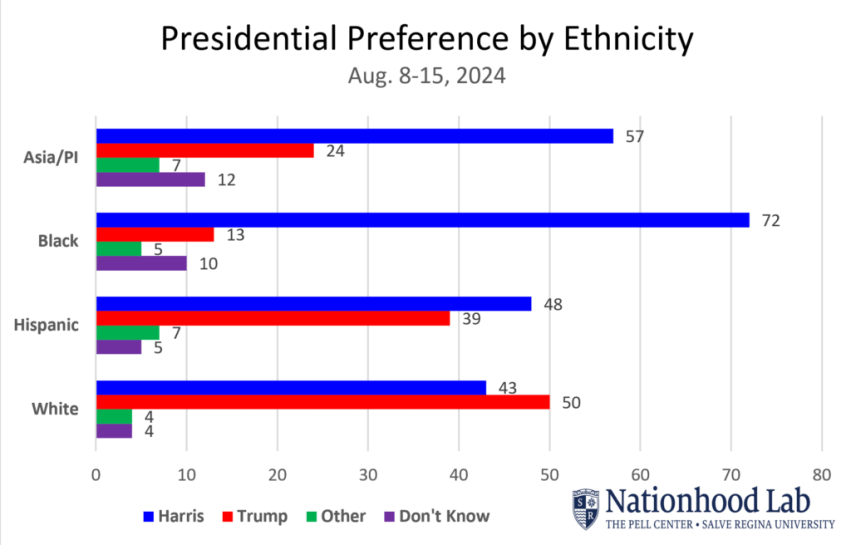
Few 2020 voters have switched loyalties, with only 2 percent of those who cast ballots for Trump or Biden saying they intended to support the other party’s nominee this time around. But Harris has a 23-point advantage with respondents who said they did not vote in 2020. White evangelicals haven’t soured on Trump either, with 88% intending to cast ballots for him, compared to just 16 percent of the religiously unaffiliated.
The poll was conducted for Nationhood Lab, a project at Salve Regina University’s Pell Center that studies the problems of United States nationhood and the threats to American democracy, and how to help solve them. One aspect of its work is to analyze regional differences over a wide range of phenomena in U.S. life using the American Nations model, which maps regional cultures based on rival settler-colonist patterns and the distinct institutions and cultural assumptions that followed from them.
Consistent with historical election results, the poll found wide differences in presidential preference between the American Nations regional cultures, with Trump ahead by 13 points in Greater Appalachia and 2 in Deep South, tied with Harris in the Far West, and behind in all the other regions, including the historic “swing region” of the Midlands where Harris leads him by 6. This represents a significant decline in Trump’s support since the 2020 election in the most reliably “red” regions. In that election, Trump won Greater Appalachia by 21, Deep South by 7, and Far West by 5, while losing the Midlands – which straddles historical swing states like Pennsylvania, Ohio, Iowa, and Missouri – to Biden by just 2 points. Harris’s margin of support is 8 points weaker in El Norte than Biden’s was in 2020, however.
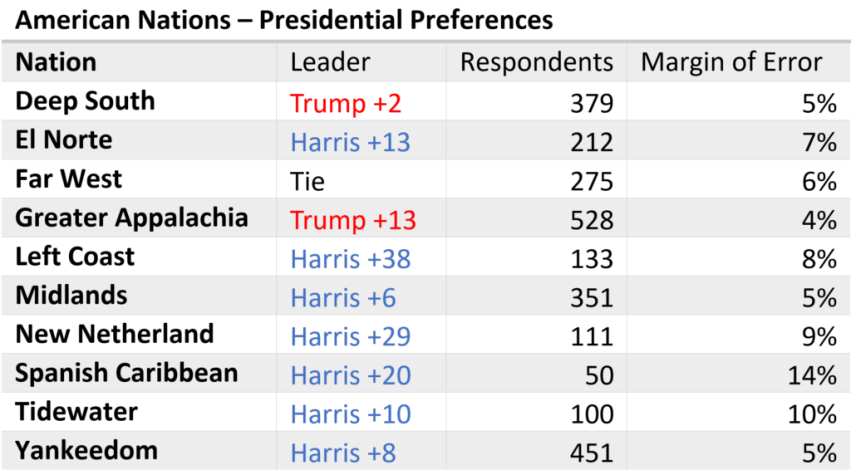
The American Nations results have smaller sample sizes than the national poll and, thus, higher margins for error: from 4 to 5% in the more populous regions (Greater Appalachia, Yankeedom, Deep South and Midlands) to 10% and 14% in the smallest regions polled, Tidewater and the Spanish Caribbean enclave in South Florida. Results for the smaller regions should be treated with caution. The presidential preference question was asked as part of a larger poll that also queried registered voters, and the age and ethnicity results were from samples weighted to registered voters rather than likely ones, introducing the possibility of a slightly larger margin of error than the 2% in the topline question. Embold Research’s statement of methodology is available here.
